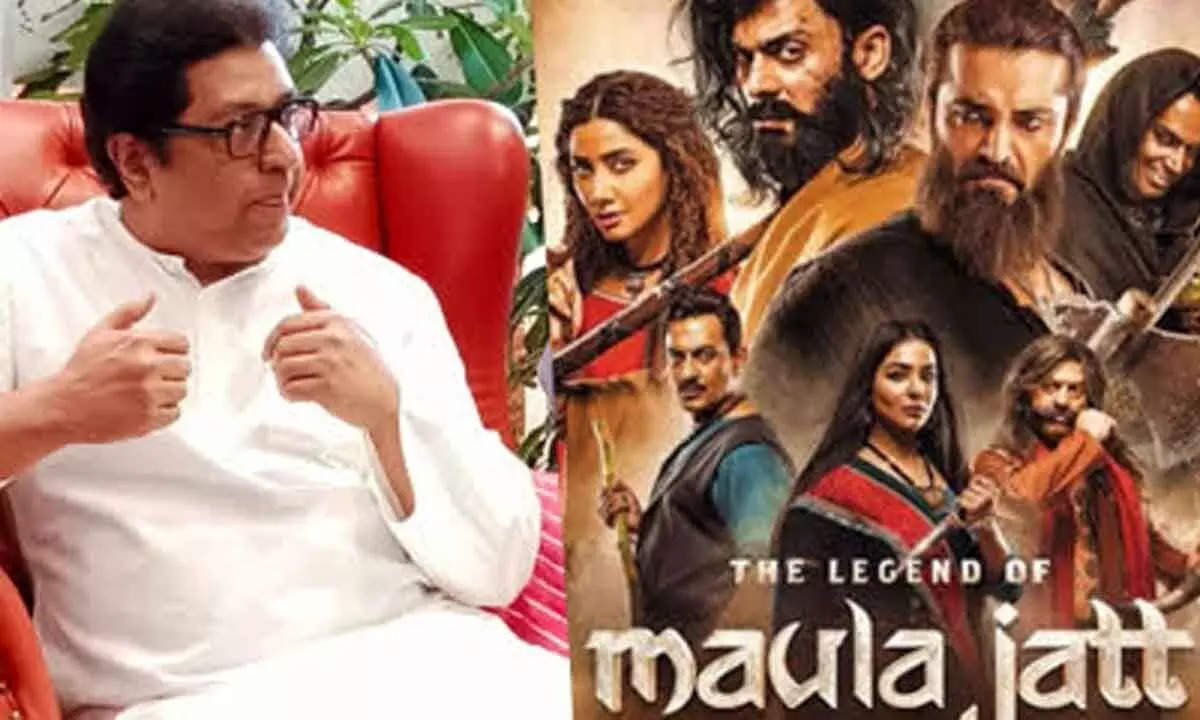In a significant development in the ongoing discourse surrounding cultural sensitivity and political identity, Raj Thackeray, the leader of the Maharashtra Navnirman Sena (MNS), has announced that his party will not allow the screening of the Pakistani film "Maula Jatt," which features Fawad Khan. The film, which has garnered international attention for its cinematic prowess, has now become a focal point of controversy, reigniting debates over cultural imports and national sentiment in India.
Thackeray’s vehement opposition to the film stems from not only its Pakistani origins but also its association with Hamza Ali Abbasi, a noted Pakistani actor who has publicly expressed sympathies towards Hafiz Saeed, a controversial figure linked to terrorism. Thackeray has made it clear that the MNS considers the screening of "Maula Jatt" in Maharashtra unacceptable, warning theatre owners that they could face severe consequences if they attempt to screen the film.
Cultural Tensions and Political Ramifications
The announcement has sparked a range of reactions from various stakeholders, including film enthusiasts, cultural critics, and political observers. Thackeray emphasized that the MNS is committed to safeguarding Maharashtra's cultural identity and will take necessary steps to ensure that films perceived as promoting anti-India sentiments do not find a platform within the state. "We will not allow any film that glorifies individuals with dubious backgrounds to be shown in our theatres," he declared at a press conference.
This move reflects a broader trend where regional parties in India increasingly assert their stance on cultural issues, often aligning entertainment with national identity. The MNS’s stance has elicited mixed responses from the public, with some supporting Thackeray’s call for cultural protectionism, while others criticize it as an infringement on artistic freedom.
The Backlash and Support
Supporters of Thackeray argue that the ban on "Maula Jatt" is necessary to maintain national integrity, citing concerns over the portrayal of India in media and the impact of foreign narratives on Indian audiences. They contend that allowing films featuring individuals with alleged terrorist sympathies could send the wrong message and inadvertently endorse ideologies contrary to India's values.
On the other hand, critics of the MNS’s decision argue that such actions suppress artistic expression and discourage cultural exchange. Fawad Khan, a prominent figure in Indian television and film, has a substantial fan following in India, particularly after his successful roles in popular serials. Many view the ban as an overreach that undermines the contributions of artists like Khan to the Indian entertainment landscape.
Broader Implications for Indo-Pak Relations
The controversy surrounding "Maula Jatt" is emblematic of the complexities in Indo-Pak relations, where cultural exchanges can become battlegrounds for political ideologies. As tensions between the two nations have historically influenced media, the MNS's intervention signals a reluctance to separate cultural engagement from political narratives. This incident is likely to reignite discussions around the film industry’s role in shaping perceptions of national identity.
Conclusion
As the dust settles on Thackeray's declaration, the fate of "Maula Jatt" remains uncertain in Maharashtra, and potentially in other Indian states. The film industry, which thrives on cross-border collaborations, faces increasing scrutiny in the current socio-political climate. Theatre owners must now navigate the precarious line between artistic expression and compliance with regional political sentiments.
The unfolding situation raises pertinent questions: How far should regional parties go in regulating cultural content? And what does this mean for the future of Indo-Pak cinematic collaborations? With both supporters and detractors of Raj Thackeray weighing in, the debate over "Maula Jatt" is poised to continue, reflecting deeper societal sentiments that extend beyond the silver screen.
In this cultural tug-of-war, where do you stand? Are you with Raj Thackeray in protecting Maharashtra’s cultural identity, or do you support Fawad Khan’s artistic contributions? The dialogue is just beginning.
--

